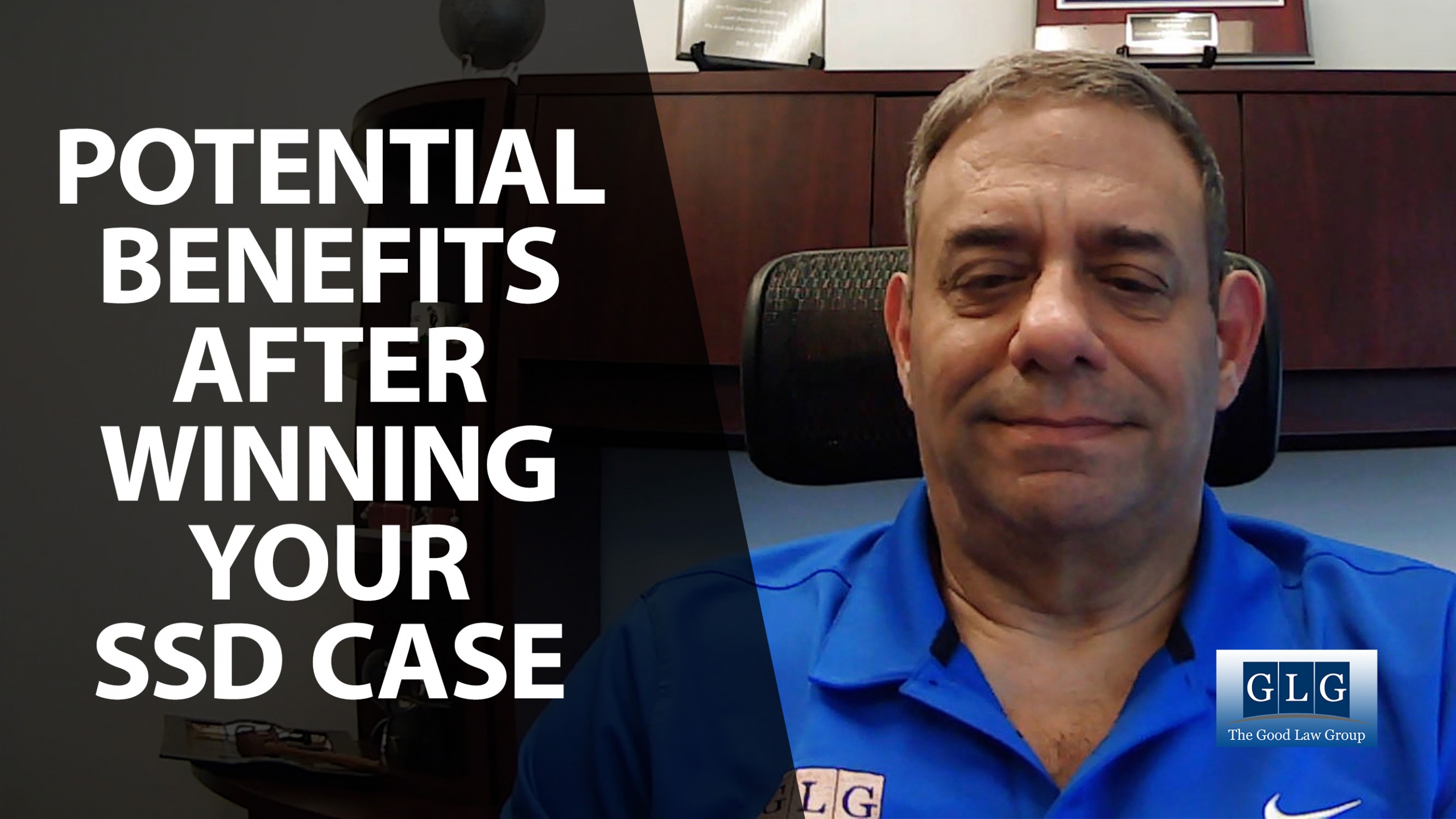So you have received notice that you’ve won your SSD case and are entitled to social security disability benefits. Congratulations! Although the hard part is over, that doesn’t mean you no longer have to deal with the Social Security Administration (SSA). Here is what you can expect after winning your SSD case.
Notice of award
Once your application is approved, the SSA mail you a notice of award. The notice will tell you the amount of your monthly benefit, your disability onset date (the date the SSA determined you became disabled), and the date you can expect to receive payment. No SSD payments are made until an applicant has been disabled for five months, so the earliest you should expect to receive payment is the sixth month following your disability onset date.
Note that if your application was approved following an appeal at the administrative hearing or appeals council levels, you will receive a separate notice of decision informing you whether your SSD case was approved or denied; the notice of award will be sent in a separate follow-up letter.
Continuing Disability Review (CDR)
You will continue to receive SSD benefits so long as your condition does not improve. The SSA will periodically conduct a continuing disability review (CDR) to re-evaluate your medical condition to confirm that it still meets the agency’s disability criteria. The frequency of your CDRs depends on your disability and the likelihood that your condition will improve. The SSA assigns each SSD recipient to one of three categories, which will be noted in your award letter.
If you are classified as:
- Medical Improvement Expected (MIE), you should expect a CDR every six to 18 months
- Medical Improvement Possible (MIP), you should expect a CDR at least once every three years
- Medical Improvement Not Expected (MINE), you can expect a CDR every five to seven years
Social Security Disability back pay
The majority of SSD applications take more than five months to be approved; this means there is a period of time where an applicant was eligible to receive benefits, but was not receiving them because the SSA had not yet approved their application. In these cases, you are entitled to receive social security disability back pay for those “lost” months of benefits. The amount of SSD back pay you are eligible to receive depends on the date your application was submitted, your disability onset date and the date your application was approved.
You may also be entitled to receive retroactive benefits for the period prior to your application date, if you can prove that your disability onset date occurred prior to your application date.
Payment of attorney’s fees
SSD cases are handled on a contingency basis, meaning your attorney does not receive payment unless he wins your case. SSA rules provide that SSD attorney fees may be no more than one-fourth of any back-pay an applicant receives, or $6,000, whichever is less.
Note that these rules regarding payment of attorney’s fees does not include payment for incidental expenses, such as charges for telephone calls, photocopying, or travel, that the attorney incurs as a result of representing you. These charges must be paid regardless of whether you win your SSD case. Make sure to talk to your SSD attorney about what charges, if any, you will be responsible for before signing a representation agreement.
To learn more about Medicare and the other benefits you may receive after you win your case, watch this short video.
Duty to report
You have an obligation to immediately report to the SSA any information that may affect your eligibility to receive benefits. The SSA requires that all SSD recipients report the following information while receiving SSD benefits:
- Any work you perform, no matter the amount earned;
- Any other disability benefits you receive;
- If you participate in the Ticket to Work program;
- If you move;
- If your direct deposit account information changes;
- If you need help managing your benefits;
- If you receive a pension;
- If there is a change in your marital or parental status;
- If you are convicted of a crime, violate probation or parole or have an outstanding warrant for your arrest.
Failure to provide this information, or providing false information, can result in the immediate termination of your benefits.
Are you thinking about applying for SSD benefits or ready to start the application process? Consider the Law Office of The Good Law Group for your representation. Contact us online for a free case evaluation or call #(847) 577-4476.









